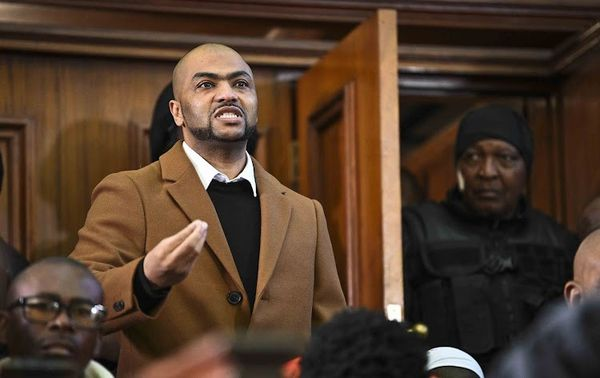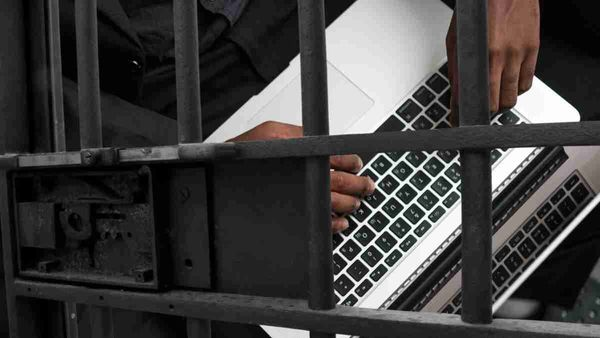
In a development that has captured significant media attention, convicted murderer and serial fraudster Thabo Bester has recently filed a court application requesting access to a laptop while he is incarcerated. Bester’s application centers on his need for the laptop to prepare his defense for upcoming legal proceedings. However, the Department of Correctional Services has firmly rejected this request, citing substantial security concerns tied to Bester’s past activities involving technology.
Bester’s Request

Thabo Bester, who gained notoriety not only for his heinous crimes but also for his audacious prison escape in 2022, argues that access to a laptop is crucial for him to effectively mount his defense. According to Bester, having a laptop would enable him to review case materials, draft legal documents, and communicate with his legal team more efficiently. This claim highlights a broader debate about the balance between an inmate’s rights to prepare a defense and the security protocols that govern prison environments.
The Department of Correctional Services’ Rejection
The Department of Correctional Services has staunchly rejected Bester’s request, citing serious security risks associated with providing him access to a laptop. The rejection is not without precedent; Bester’s previous use of technology while incarcerated is a central concern.
In 2022, Bester orchestrated an elaborate escape from prison, which was facilitated by his access to a laptop. During this escape, he not only evaded capture for an extended period but also committed additional fraudulent activities while on the run. His ability to manipulate digital tools to further his criminal activities while in custody underscores the Department’s apprehension about granting such access again.
Security vs. Legal Preparation
This situation brings to light a complex issue at the intersection of prison security and the rights of inmates. On one hand, there is a legitimate need for defendants to have adequate means to prepare their legal defenses. On the other, there are considerable risks associated with allowing access to technology for individuals with a history of using it to further criminal activities.
The security implications of allowing Bester access to a laptop are significant. There is a genuine fear that such access could enable him to coordinate with accomplices, plan further escapes, or engage in other illicit activities. Given his track record, these concerns are particularly pressing. The Department of Correctional Services’ decision reflects an effort to prioritize the safety and security of the prison environment and the broader community.
The Legal Implications
Bester’s legal team may argue that the denial of access to a laptop infringes on his right to a fair trial, a fundamental aspect of the justice system. Courts often grapple with ensuring that all defendants have a fair opportunity to prepare their cases while balancing security concerns. This case will likely prompt a detailed examination of how to reconcile these competing interests.
Moving Forward
As Bester’s case unfolds, it will be interesting to observe how the courts address the balance between maintaining stringent security measures and ensuring that individuals have the necessary resources to defend themselves adequately. The outcome could set important precedents for how similar situations are handled in the future, especially for high-profile inmates with a history of exploiting technological access.
In the meantime, the debate over Bester’s laptop access highlights the ongoing challenges faced by correctional facilities in managing both security and justice. It also underscores the broader conversation about the rights of inmates and the practicalities of ensuring their legal rights are upheld within the constraints of a secure environment.